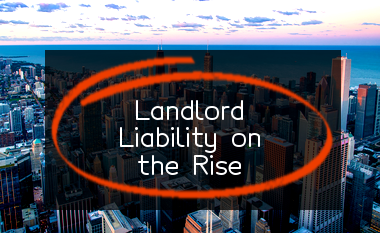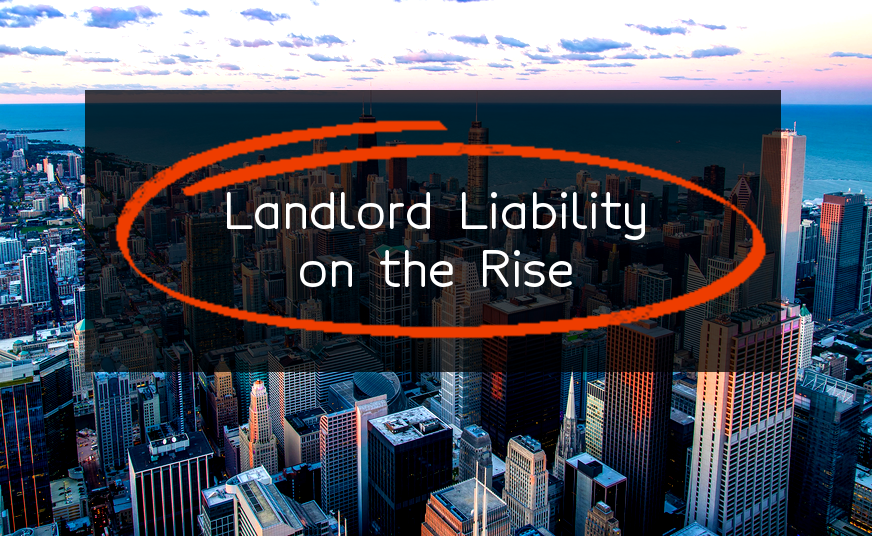- 1. Screen and Select Tenants Carefully: One of the most important things that landlords can do to protect themselves against legal liability is to conduct rigorous screening of prospective tenants. This includes performing background and credit checks, contacting references and ensuring all potential occupants are legally allowed to rent the unit. This will minimize the risk of renting to someone who may cause damage, violate the lease agreement, or cause problems with neighbors.
- 2. Ensure Compliance with State and Federal Laws: Each state and federal government has different laws governing landlord-tenant relationships. It is important for the landlord to comply with all required regulations and laws to avoid potential legal liability. For example, if the landlord does not follow notice requirements set forth in the state law in the event of an eviction, the landlord could end up in court.
- 3. Keep Accurate Records: Landlords should keep accurate records of everything related to the rental property and the tenants occupancy, including lease agreements, inspection reports, rent receipts, and correspondence with tenants. These records can be used as evidence if there is a legal dispute. Also, be prepared to provide copies of all agreements and correspondence to your tenants if they request it.
- 4. Regularly Inspect and Maintain the Property: Regular inspections will help the landlord to identify potential safety hazards and prevent maintenance issues from escalating to more significant problems. Landlords should be proactive in ensuring that the rental units are up to code, safe and secure. This will help minimize the risk for personal injury or property damage that could result in legal liability.
- 5. Obtain Appropriate Insurance Coverage: Landlords should obtain the necessary insurance coverage to protect against liability claims. This may include property insurance, liability insurance, and flood insurance if the property is located in an area prone to flooding. Having these policies in place can minimize the cost of legal defense and damages if an accident or legal claim arises.
What Are Landlords Liable For?
Landlords are liable for a wide range of things to ensure the safety and comfort of their tenants. Here are some of the main things landlords are liable for:
- 1Property Maintenance: Landlords are responsible for ensuring that their properties comply with the health and safety regulations of the local council. This includes keeping their property free from hazards such as mold, faulty electrical systems, pests, or gas leaks.
- 2Security: Landlords are responsible for providing adequate security measures that protect their tenants from crime and other threats. This might include installing deadbolts, window locks, and security lights.
- 3Repairs: Landlords are responsible for fixing any damages that arise in their property due to normal wear and tear or accidental damage caused by tenants. This includes repairing broken appliances or fixing plumbing issues.
- 4Landlord insurance: Rental properties should be properly insured to protect the landlord against unforeseen and potentially expensive damage. Landlords should ensure that they have appropriate landlord insurance to cover their property and their liability risks.
- 5Tenant Privacy: Landlords are responsible for respecting tenant privacy. This includes providing written notice before entering the property and maintaining confidentiality of tenants personal information.
- 6Discrimination: Landlords cannot discriminate against tenants due to their race, religion, gender, or any other protected characteristic specified under anti-discrimination laws.
- 7Safety and Health: Landlords are responsible for ensuring that their property complies with fire safety regulations. They must provide smoke detectors, carbon monoxide detectors, and maintain doors and windows that allow for safe exits in case of an emergency.
- 8Legal Responsibility: Landlords should also be aware of their legal obligations, such as ensuring that they provide a tenancy agreement that follows the law, yet also takes care of the tenants' needs and rights. They must also be able to provide updated records such as meeting their mortgage obligations, paying taxes, and following zoning laws.
In summary, landlords are responsible for providing a safe and livable space for their tenants, ensuring adequate security, repairing damages that occur, insuring the property, respecting tenant privacy, avoiding discrimination, ensuring health and safety compliance, and maintaining legal obligations.
Why Landlords Are Liable for Tenants? Legal Violations?
Landlords are liable for tenants' legal violations because they have a legal obligation to provide a safe and habitable environment. This duty includes ensuring that the property is maintained in compliance with all applicable laws, such as building codes, health and safety codes, and zoning regulations. If a tenant violates these laws or regulations and causes harm to others, the landlord can be held responsible.
Landlords are also responsible for selecting tenants who are unlikely to cause legal problems, such as those with criminal records or a history of evictions. Therefore, if a landlord fails to properly screen tenants and a tenant causes legal violations, the landlord can be held liable.
Furthermore, landlords are responsible for enforcing lease agreements and ensuring that tenants comply with them. If a tenant violates the terms of the lease, such as causing damage to the property, engaging in illegal activities, or using the property for unlawful purposes, the landlord may be held liable for the tenant's actions.
Ultimately, landlords are responsible for maintaining a safe and legal environment for their tenants and the surrounding community. If they fail to meet this obligation, they can be held liable for any resulting legal violations.
5 Tips to Avoid Landlord Liability
- 1. Ensure the property is safe: As a landlord, it is your responsibility to ensure that the property you rent out is safe and secured. This includes providing a smoke detector, making sure all appliances are functioning correctly and ensuring that there are no hazards on the property. Regular property inspections and maintenance checks can help identify and address any potential safety risks.
- 2. Keep accurate records: It is crucial to document everything related to your property and tenancy agreements, including rent payment records, maintenance and repair history, and property inspections. Accurate records will be useful in mitigating any potential lawsuits, and it can serve as evidence to defend your case.
- 3. Provide clear communication: Ensure that you establish clear communication channels with your tenants about their rights and responsibilities. This includes providing written agreements, outlining your terms and conditions, and answering any questions or concerns they may have promptly. Clear communication can help prevent misunderstandings and ensure that your tenants understand their rights and obligations.
- 4. Obtain the right insurance: Landlord insurance can protect you from potential financial losses in case of an accident, damages, or injury on your property. It is essential to speak to insurance agents and consider the type of coverage you may need, including liability coverage, property coverage, and loss of rental income coverage.
- 5. Follow all laws, rules and regulations: As a landlord, you must comply with all relevant local, state, and federal laws. This includes obtaining the necessary licenses and permits, adhering to health and safety codes, and following eviction procedures in case of non-payment or failure to comply with rental agreements. Knowing the laws and regulations can help you avoid legal issues and liability suits.
Beware of Landlord Liability
As a tenant, it is important to be aware of the potential for landlord liability. Landlord liability refers to a landlord's legal responsibility to maintain a safe and habitable living space for tenants. Landlords are responsible for providing essential services, such as water, heat, and electricity, and for maintaining the property to ensure that it is free from hazards.
If a landlord fails to fulfill these responsibilities and a tenant is injured as a result, the landlord may be liable for damages. For example, if a tenant slips and falls on a poorly maintained staircase, the landlord may be responsible for paying for medical bills and other damages.
Furthermore, landlords are also responsible for addressing any issues related to discrimination, harassment or other illegal activities by other tenants, including ensuring that the property is secure and that tenants are safe. Failure to address these issues can result in legal liability for the landlord.
Therefore, it is important for tenants to be aware of their rights and the landlord's responsibilities in order to ensure a safe and comfortable living environment.
Just one more thing: if you liked the article, please like us on social media and share this article with friends.



